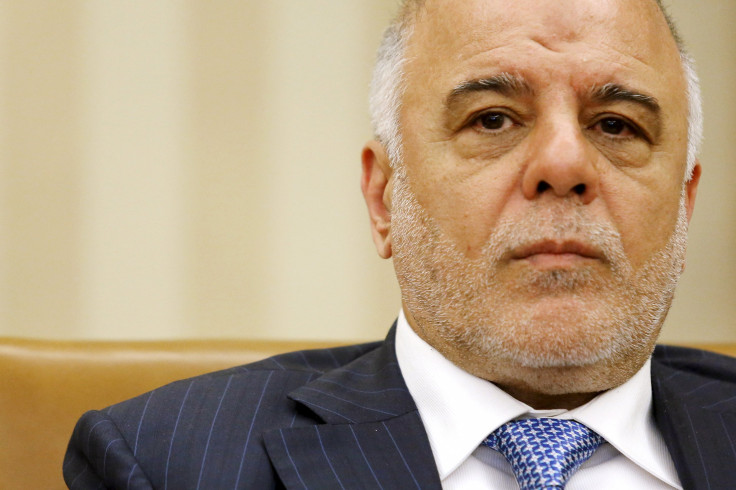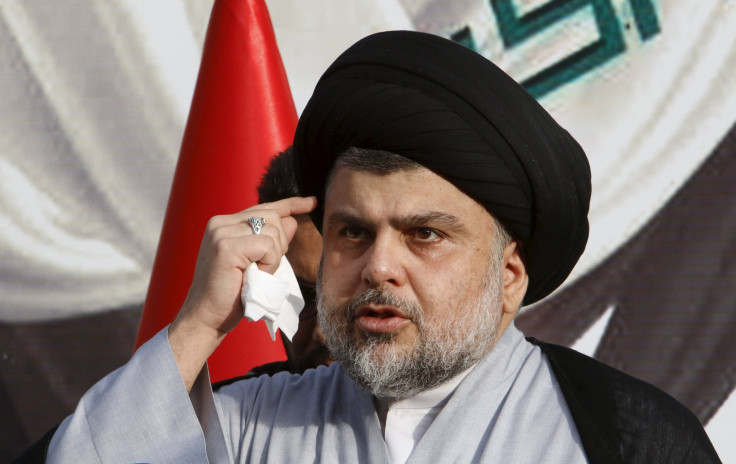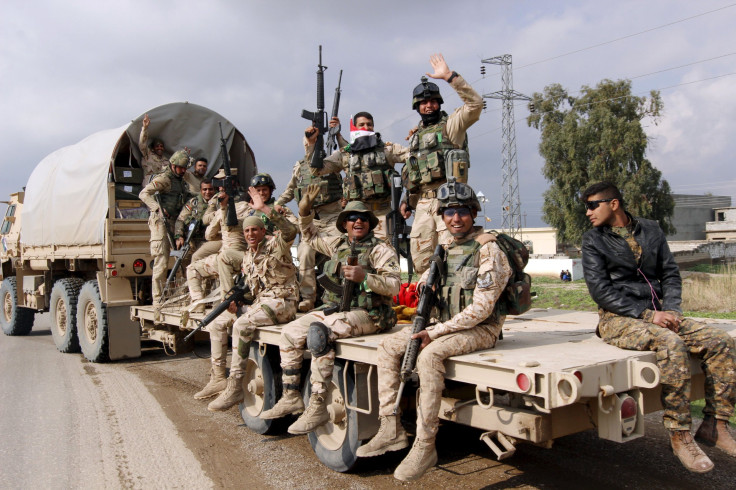Iraq Government Teeters On Edge Of Collapse As Fight Against ISIS Drags On

The government in Iraq is teetering on the edge of collapse as Prime Minister Hader al-Abadi tries to reshuffle his cabinet and rid the country of corruption. Members of Parliament continue to protest his efforts to appoint new leaders and are calling for his ousting. Meanwhile, religious Shiite heavyweights are pressuring Abadi to press forward with his reform movement.
Muqtada al-Sadr, a powerful Iraqi Shiite cleric who supports Abadi, called on the government to form a new cabinet in the next 72 hours in a handwritten letter published on social media. He warned that if the government does not move forward with negotiations, it could collapse altogether.
“The current political crisis threatens the stability of Iraq in an unprecedented manner, and the crisis could see the government collapse,” the Institute for the Study of War reported in its recent assessment of Iraq.
#Iraq parliament split - Badr Corps joins Iraqiya in demanding new prime minister. Calls for all factions to attend vote on new speaker.
— jane arraf (@janearraf) April 16, 2016
The infighting has turned Baghdad into a cauldron of chaos. Parliament is almost nonfunctional, the president doesn’t have a cabinet, and the Kurds in Erbil now more than ever are pushing for outright independence in oil exports, angering the energy officials in the capital. Almost all of the politicians Abadi has tapped to take office have refused their appointments. This is all happening while the police and security forces battle the Islamic State group, aka ISIS, which still controls the major city of Mosul and much of western Iraq.
“The only party that benefits from the political divisions and chaos, as well as the weakening of the state and its institutions, is Daesh,” Gyorgy Busztin, deputy special representative of the U.N. secretary-general, said in a statement this week, using another name for the terrorist organization. “We should not allow this to happen,” he said.
The international community, particularly the U.S. and the United Nations, has tried to instill calm in the country. Secretary of State John Kerry visited Baghdad last week and vowed to ramp up pressure against ISIS.
“Daesh unequivocally is losing ground,” Kerry told reporters after a series of meetings with Iraqi officials in the fortified Green Zone. “It’s losing leaders, it’s losing fighters, it’s losing cash. Now some of its fighters are losing hope.”

But the Iraqi security forces are still entrenched in active battle against the terrorist group in Makhmur, a city just 75 miles from the oil-rich city of Kirkuk.
ISIS is trying to retake control of the oil fields it lost two years ago in the semiautonomous region of Iraqi Kurdistan by launching rockets at Kurdish and Iraqi soldiers. In an attempt to earn back the massive amount of cash it used to fund its international terrorism in 2014, the group has focused its resources on attacking Makhmur. So far, the group has succeeded in outgunning the Iraqi forces in the city, but a new contingent of American Marines might change the outcome on the ground.
The U.S. Marines in Iraq are on the front line and have been tasked with protecting Iraqi units in Makhmur — a scenario President Barack Obama wanted to avoid as long as possible during his time in office.
Meanwhile, tens of thousands of people have been displaced because of the fighting in Makhmur and in Anbar Province. Humanitarian organizations say at least 38,000 have been displaced from the city of Hit in Anbar since March.
Abadi says he is trying to curtail endemic corruption but his efforts so far have failed. Amid the chaos, officials are quietly trying to skew the country’s economy for personal gain.

Former Prime Minister Ayad Allawi and his political allies are trying to control, directly as well as indirectly, the oil and gas sectors in Iraqi Kurdistan. The region has one of the largest reserves of both oil and natural gas, but the fight against ISIS, corruption and disputes between the regional government in Erbil and the central government in Baghdad have pushed the latter into debt. Allawi wants to change all of that by ensuring his political allies get seats in top ministerial positions.
If he succeeds, he could get massive financial payouts from energy companies. Those companies are also interested in keeping allies in top positions to continue to maintain profitable contracts.
Allawi isn’t the only one trying to gain influence in the central government. Other political leaders are as well, and the energy sector is the most valuable prize.
Parliament tried to meet Saturday in Baghdad, but not enough members showed up to hold a session.
© Copyright IBTimes 2024. All rights reserved.





















